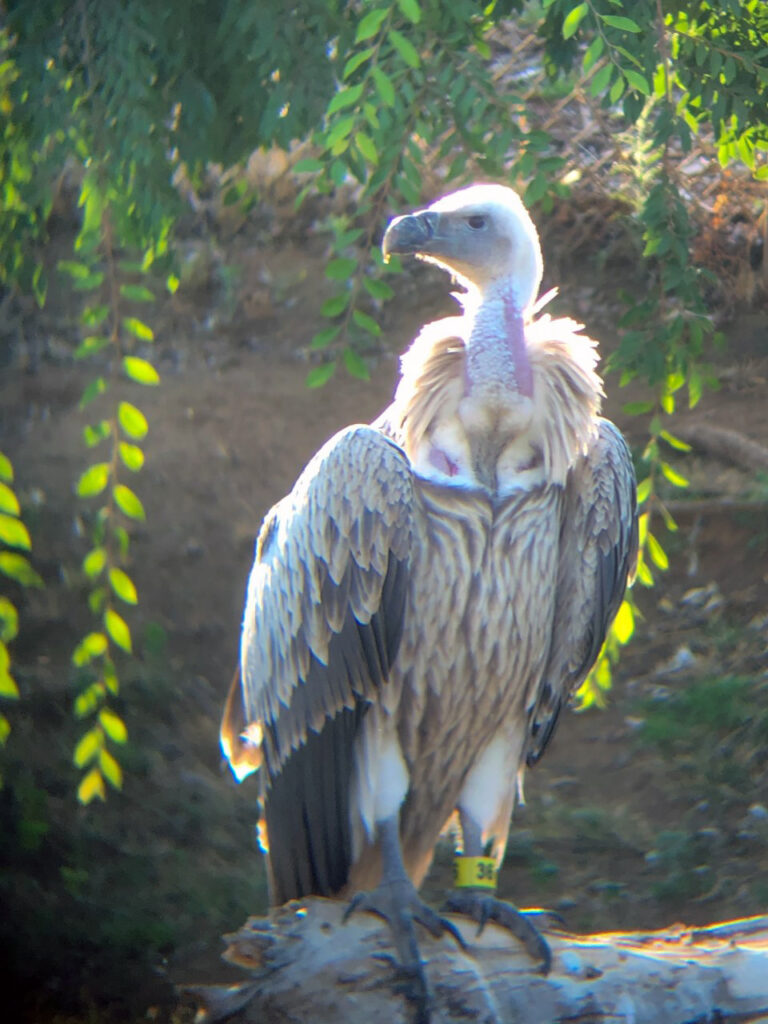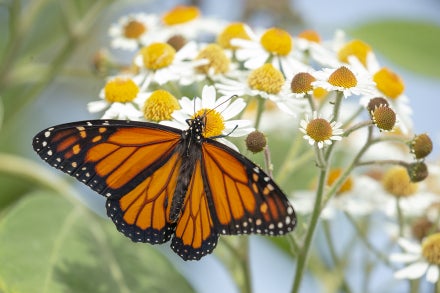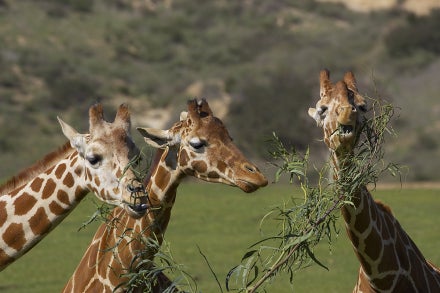
Vultures are the planet’s “cleanup crew” and are essential in disposing of carcasses that could potentially carry diseases such as rabies or botulism. At the Safari Park, we are dedicated to helping increase the population size and spread awareness about these magnificent birds.
The endangered Cape vulture Gyps coprotheres (sometimes called the Cape griffon vulture) of Southern Africa is one of eight species of vultures we are breeding at the San Diego Zoo Safari Park. In 2017, we introduced a pair of Cape vultures into our vulture breeding colony in the marsh habitat, viewable from the Africa tram path. As you can imagine, we were extremely excited to get a fertile egg from them the very next breeding season (2018). To safeguard the precious egg, we replaced it with an artificial egg, and moved the real egg to our incubation unit to keep an eye on it as it continued to develop. Unfortunately, the pair did not sit well on the artificial egg. We found the dummy egg outside the nest almost every day of the 56-day incubation period, most likely from them accidentally pushing it out when switching places on the nest.
We had hoped to return the real egg to the parents when it was ready to hatch, but vultures need a strong relationship to properly care for an egg and chick. Since the Cape vultures’ pair bond wasn’t as strong as we would like, we deemed it too risky to return the real egg. The condor team, so experienced with successfully puppet raising chicks, stepped in to help.
When the same pair produced another egg in in 2019, we again switched the real egg with an artificial one. This time, while we watched over the real egg in the incubation unit, we saw a night and day difference in the pair’s care for “their” artificial egg. We felt much more confident returning their real egg at the end of the incubation period to hatch with its parents. Unfortunately, the pair was unsuccessful at raising that chick, but they did gain more nesting experience.
In December 2020, the female Cape vulture laid her third egg at the Safari Park. Again, we replaced the real egg with an artificial one throughout the incubation period. The pair’s relationship had grown over the years, and this time, they did a phenomenal job brooding their artificial egg throughout the entire two-month incubation period. They were extremely attentive and protective of their nest—just what we wanted to see!
On February 4, 2021, the Cape vulture chick (a female) hatched—under its parents. We are proud to say that the pair successfully hatched, raised, and fledged the chick on their own. The 2021 Cape vulture chick is doing great—the first parent-raised Cape vulture in San Diego Zoo Wildlife Alliance history!
This is a huge milestone for us and for this Cape vulture pair. The chick is in the habitat with its parents and viewable from the Africa tram tour path. Make sure to get a look at her next time you visit us!

Brooke Johnson is a senior wildlife care specialist at the San Diego Zoo Safari Park
Header photo: parent-raised Cape vulture chick at 22 days old, with parents




